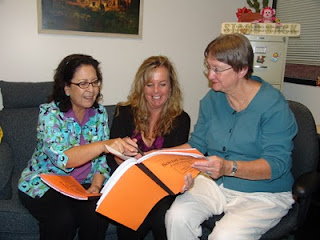Often in this space I express my concerns about the current system of how services for individuals with one or more developmental disabilities are funded and delivered. Models of support for adults with developmental disabilities throughout Colorado are not meeting the needs of the current eligible population, and are unsustainable for the future. Nearly one-third of the adults who are known to be eligible for services within Imagine!’s service area are on multi-year wait lists. The number of individuals on these wait lists is expected to nearly double by 2020 if a more effective and sustainable system is not implemented.
Because the current service delivery and funding landscape is dominated by a deficit-model mindset and cost-containment strategies, efforts to determine the total number of individuals with developmental disabilities and to understand the true scope of their needs have been insufficient. With no end in sight to the growing wait list, a new model of service provision must be explored.
Imagine!’s Boulder County Initiative (BCI) is such a model.
Using Boulder County mill levy funds, the Boulder County Initiative will provide support to individuals on the Imagine! adult wait list for services. Utilizing local funds provides for flexibility in service design and delivery, rather than being defined by a federally dictated set of rules for participation and service delivery. Imagine!’s Boulder County Initiative will be comprised of individuals who participate in a needs assessment that: 1) identifies the support needs of the individual through use of the Supports Intensity Scale, and; 2) assesses individual/family needs, resources, and priorities. Eligibility for participation in Imagine!’s Boulder County Initiative includes: individuals who are 18 years of age or older, currently reside in Boulder County, are U.S. citizens, and who are not receiving other waiver or state funded adult services.
The BCI model will include a navigator who works with individuals and families to identify and access existing resources. Only after all other resources have been exhausted will Boulder County funds be accessed. The backbone of the BCI will be the strengths of individuals and families. BCI will focus on the needs and self-identified priorities of the individual (and family whenever possible).
I have high hopes for this program as a first step toward re-configuring our system to better meet the needs of those we serve.
Wish List Wednesday
6 years ago



